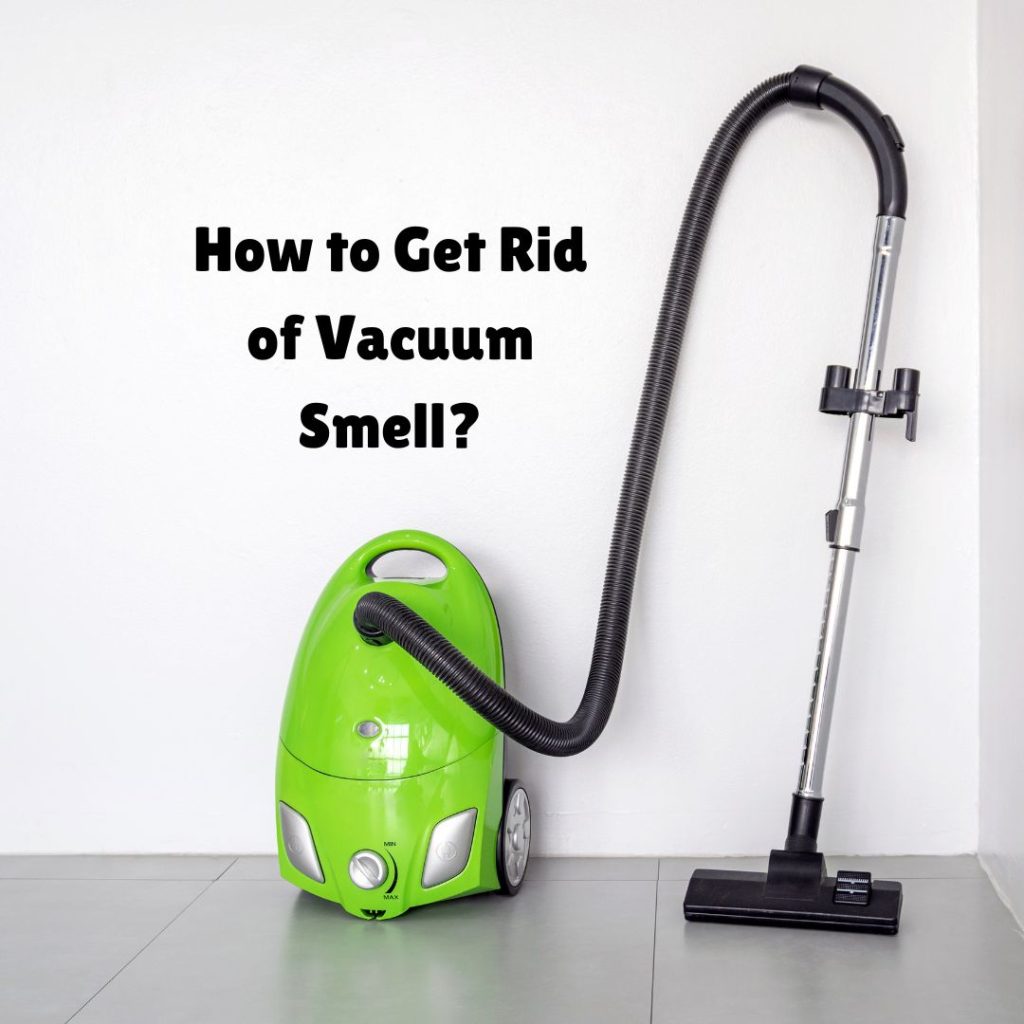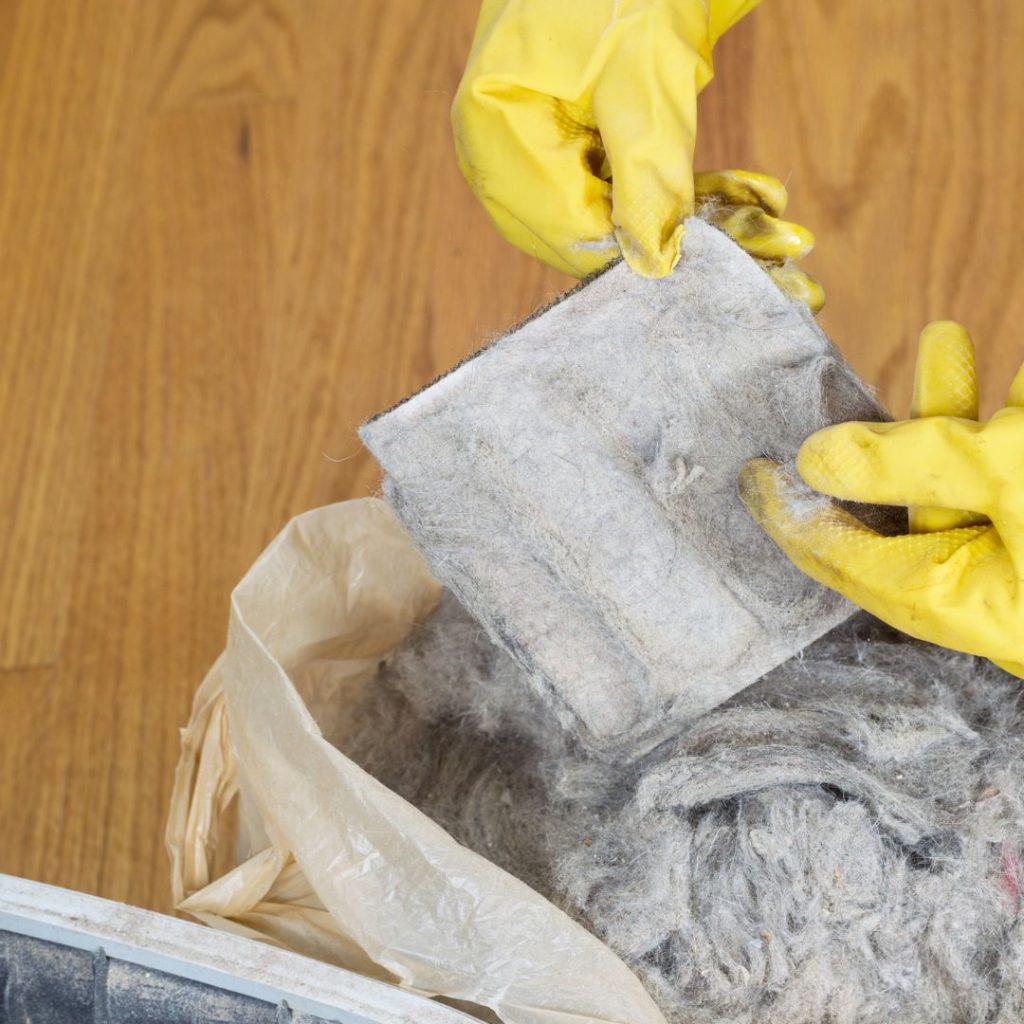
A vacuum cleaner is a crucial tool for maintaining a fresh and clean environment, but it can sometimes develop a distinct, less-than-pleasant smell. Fortunately, there are effective strategies to tackle and eliminate these odors. In this comprehensive guide, we’ll explore ten genius hacks on how to get rid of vacuum smell and restore freshness to your home.
Clean Your Vacuum Inside and Out
One of the most effective ways to get rid of vacuum smell is to give your vacuum a thorough cleaning. Start by unplugging the vacuum and disassembling it according to the manufacturer’s instructions. Remove and empty the dust canister or replace the vacuum bag if necessary. Wash or replace filters if they are dirty.
Next, clean the brush roll and any other removable parts. Use a damp cloth or sponge to wipe down the inside of the vacuum, paying special attention to areas where dirt and debris might accumulate. Allow all parts to dry completely before reassembling the vacuum. Regularly cleaning your vacuum not only helps to eliminate odors but also ensures that it operates efficiently.
Baking Soda to Eliminate Vacuum Odors
Baking soda is a versatile and effective solution for neutralizing odors, and it works wonders on vacuum smells.
To use baking soda to get rid of vacuum smell, sprinkle a generous amount of baking soda onto your carpets or floors before vacuuming. The baking soda will absorb and neutralize odors as you clean.
Another method is to place an open box of baking soda inside the vacuum’s dust canister or bag. This helps to absorb any lingering odors. Remember to replace the baking soda regularly to maintain its effectiveness.
Essential Oils
Essential oils can be a delightful way to infuse a pleasant fragrance into your vacuum cleaner while also addressing bad smells. To use essential oils:
- Add a few drops of your favorite essential oil to a cotton ball or a piece of felt.
- Place the cotton ball or felt inside the vacuum’s dust canister or bag.
- As you vacuum, the essential oils will be dispersed, leaving a fresh scent behind.
Popular essential oils for this purpose include lavender, lemon, and eucalyptus. Essential oils not only help to mask unpleasant odors but also provide a natural and enjoyable fragrance.
Vinegar
Vinegar is another natural and effective solution for getting rid of vacuum smell. Its acidic properties help to neutralize odors and break down buildup. To use vinegar:
- Mix equal parts of water and white vinegar in a spray bottle.
- Lightly spray the mixture onto the vacuum’s brush roll and other removable parts.
- Wipe down the surfaces with a clean cloth.
You can also add a small amount of vinegar to a damp cloth and wipe down the interior of the vacuum. Allow the vacuum to air out and dry completely before using it again.
DIY Deodorizing Tricks
There are several DIY deodorizing tricks you can use to combat vacuum smells. One popular method is to create your own deodorizing powder:
- Mix 1 cup of baking soda with a few tablespoons of cornstarch.
- Add a few drops of essential oil for fragrance.
- Sprinkle the mixture onto carpets and vacuum it up.
Another DIY option is to use a mixture of equal parts water and rubbing alcohol in a spray bottle. Lightly mist the inside of the vacuum and let it air dry.
Regularly Changing and Cleaning Filters

Filters play a crucial role in trapping dust, allergens, and other particles. However, if they become clogged or dirty, they can start to emit unpleasant odors. To prevent this, make sure to regularly check and clean or replace the filters in your vacuum.
Follow the manufacturer’s recommendations for cleaning or replacing filters. Typically, filters should be cleaned every few months or replaced as needed. A well-maintained filter not only helps to reduce odors but also improves the overall performance of your vacuum.
Scented Vacuum Bags
Scented vacuum bags are a convenient way to keep your vacuum smelling fresh. These bags are designed with built-in fragrances that are released as you vacuum. To use scented vacuum bags:
- Purchase scented vacuum bags that are compatible with your vacuum model.
- Replace the old bag with the scented one according to the manufacturer’s instructions.
Scented vacuum bags are available in various fragrances, so you can choose one that suits your preferences.
Maintaining and Cleaning the Brush Roll
The brush roll, also known as the beater bar, is a vital component of your vacuum cleaner. It helps to agitate dirt and debris from carpets, but it can also accumulate hair, dirt, and other residues. To keep the brush roll clean:
- Turn off and unplug the vacuum.
- Remove the brush roll according to the manufacturer’s instructions.
- Use a pair of scissors or a knife to carefully remove tangled hair and debris.
- Clean the brush roll with warm, soapy water and allow it to dry completely before reinstalling it.
Regularly cleaning the brush roll helps to prevent odors and maintain optimal vacuum performance.
How to Get Rid of Vacuum Smell Caused by Pet?
Pet owners often face the challenge of dealing with vacuum smells caused by pet hair and dander. To tackle this issue:
- Vacuum Regularly: Frequent vacuuming helps to reduce the amount of pet hair and dander in your home.
- Use Pet-Specific Vacuum Filters: Invest in filters designed to capture pet allergens.
- Clean the Vacuum After Each Use: Remove pet hair from the vacuum’s brush roll and filters regularly.
By implementing these strategies, you can significantly reduce the unpleasant odors associated with pet hair and dander.
Fabric Fresheners to Tackle Persistent Vacuum Odors
Fabric fresheners can be a quick and easy solution for persistent vacuum odors. To use fabric fresheners:
- Spray Fabric Freshener: Lightly spray the interior of the vacuum’s dust canister or bag with a fabric freshener.
- Use Freshening Sprays: Purchase freshening sprays specifically designed for use with vacuums.
Fabric fresheners help to mask odors and leave a pleasant scent behind.
Proper Ventilation in Reducing Vacuum Odors
Proper ventilation in your home plays a crucial role in managing vacuum odors. Ensure that your home is well-ventilated by:
- Opening Windows: Regularly open windows to allow fresh air to circulate.
- Using Air Purifiers: Invest in air purifiers to reduce airborne odors and particles.
Good ventilation helps to dissipate odors and maintain a fresher environment.
Is It Normal for Vacuums to Smell?
While it’s not uncommon for vacuums to emit a faint smell, especially after heavy use, a strong or persistent odor typically indicates a problem.
A new vacuum might have a slight odor due to manufacturing materials, but this should dissipate over time. If the smell persists or becomes overpowering, it’s a sign that something might be amiss.
Regular maintenance can help prevent unpleasant odors. However, if you’re dealing with a particularly stubborn smell, it’s important to investigate the root cause.
Why Does My Vacuum Smell Bad?
There are several common reasons for unpleasant vacuum smells:
- Accumulated Dirt and Debris: Over time, dust, dirt, and debris can build up inside the vacuum, leading to musty or stale odors.
- Clogged Filters: Filters are designed to trap particles and allergens, but if they become clogged or dirty, they can emit unpleasant smells.
- Mold and Mildew: If your vacuum is used to clean up spills or moisture, it may develop mold or mildew, which can produce a strong, unpleasant smell.
- Pet Hair: Pet hair can accumulate in the vacuum and start to decompose, resulting in a noticeable odor.
- Burnt Components: A burning smell could indicate that the vacuum’s motor or belts are overheating or malfunctioning.
By identifying the cause of the smell, you can better target your cleaning and maintenance efforts.
Vacuum Smell Like Dog
If your vacuum smells like a dog, it’s likely due to pet hair and dander. Address this issue by:
- Regularly Cleaning the Vacuum: Remove pet hair and dander from the vacuum’s brush roll and filters.
- Using Pet Odor Eliminators: Apply pet-specific odor eliminators to carpets and upholstery.
Taking these steps helps to reduce and prevent the smell of pets from lingering in your vacuum.
Vacuum Smell Like Burning
A burning smell from your vacuum is a sign of potential overheating or mechanical issues.
- Overheating Motor: The vacuum’s motor may overheat due to prolonged use, excessive dust buildup, or blockages in the airflow. Overheating can cause components to emit a burning odor.
- Belt Issues: The belt that drives the brush roll can wear out, slip, or become damaged. A frayed or malfunctioning belt can create friction, leading to a burning smell.
- Clogged Filters or Hoses: Blocked filters or hoses can restrict airflow, causing the vacuum to overheat and emit a burning odor.
- Debris Entanglement: Foreign objects or debris tangled in the brush roll or other moving parts can cause friction and produce a burning smell.
- Electrical Problems: Faulty wiring, damaged electrical components, or short circuits can lead to a burning smell, signaling potential safety hazards.
Addressing these issues promptly helps to prevent further damage and ensures the safe operation of your vacuum.
Conclusion
Keeping your vacuum cleaner smelling fresh is crucial for maintaining a pleasant and healthy home environment. By following these ten genius hacks on how to get rid of vacuum smell, you can effectively tackle and eliminate unpleasant odors, ensuring that your vacuum works efficiently and your home remains fresh. Regular maintenance, combined with these practical tips, will help you enjoy a cleaner and more inviting living space. Remember, a fresh-smelling vacuum is a reflection of a clean and well-cared-for home.
